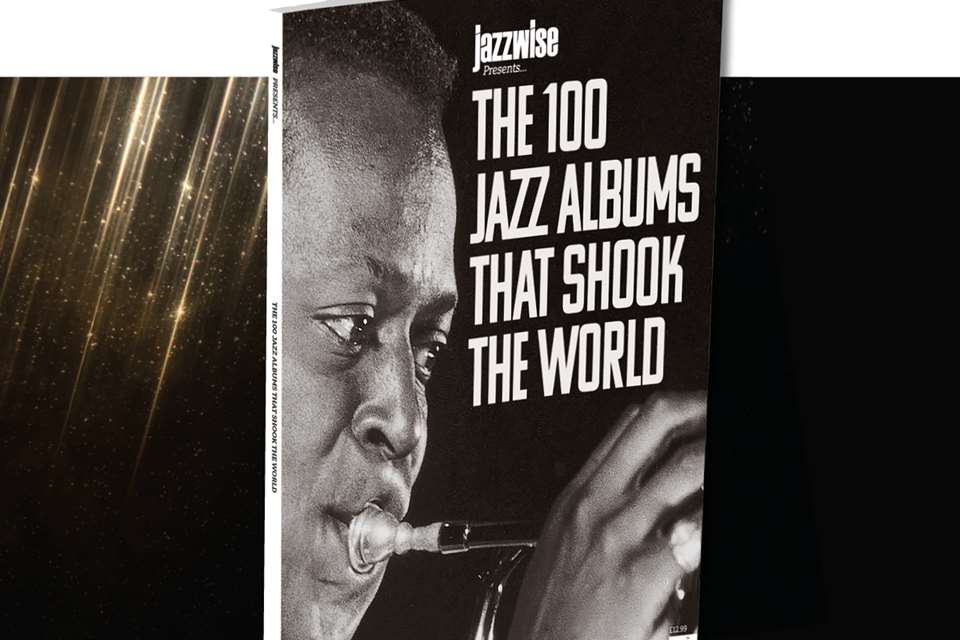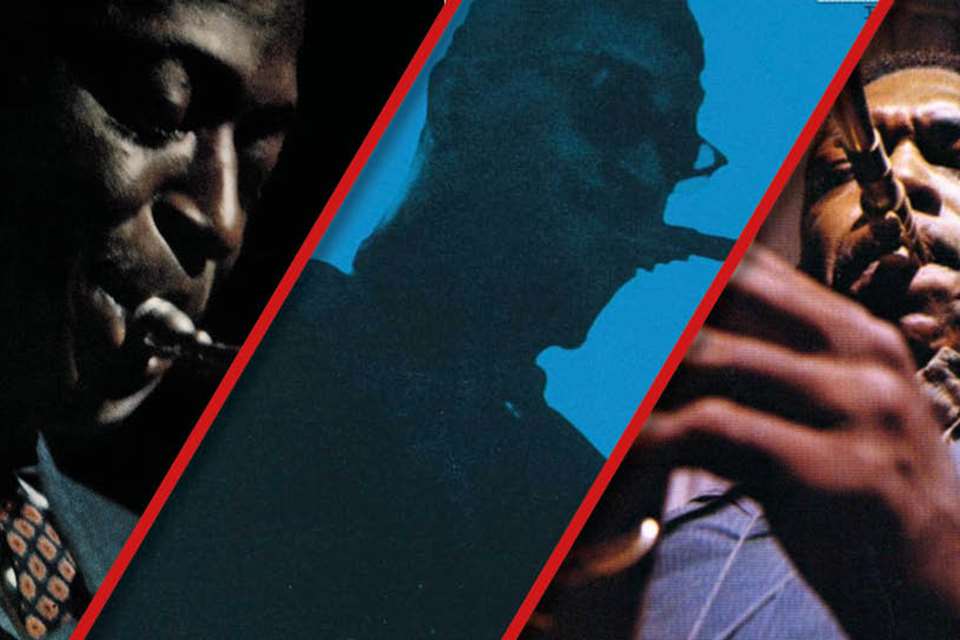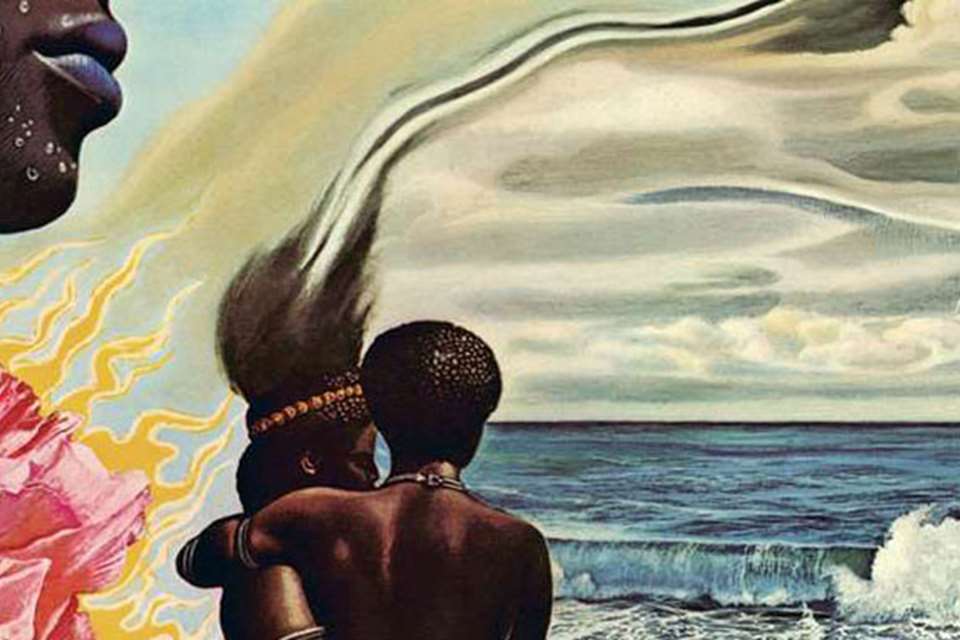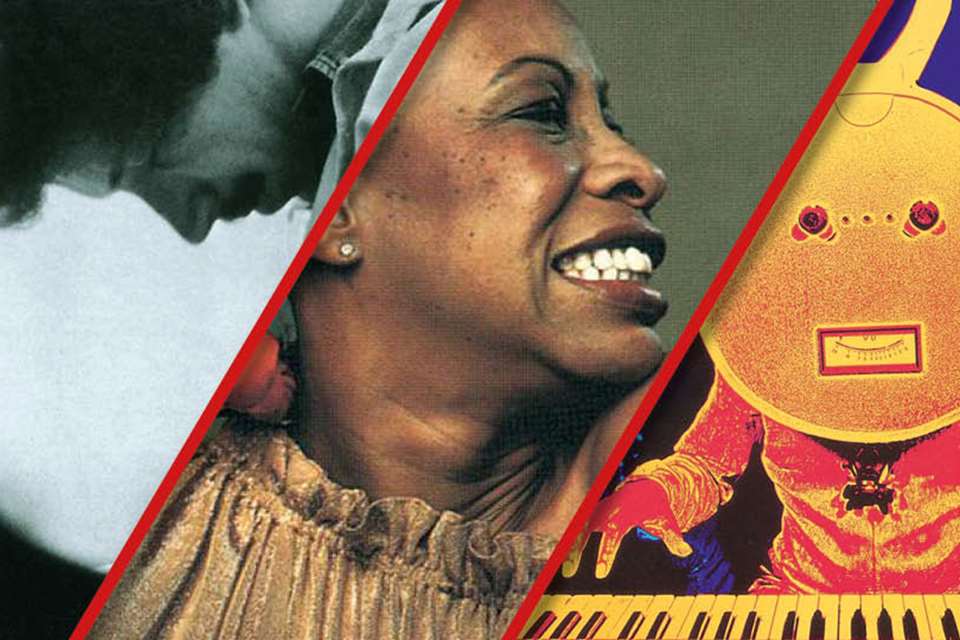Classic interview | Oscar Peterson: “Believe me, once we get to the end of a tune there's no love lost! We'll be going for one another!”
Alyn Shipton
Wednesday, October 27, 2021
Alyn Shipton spoke to the great Oscar Peterson for Jazzwise shortly before Peterson's 80th birthday in 2005 and he found the pianist in high spirits, his wordplay, wit and sparkle as sharp as ever
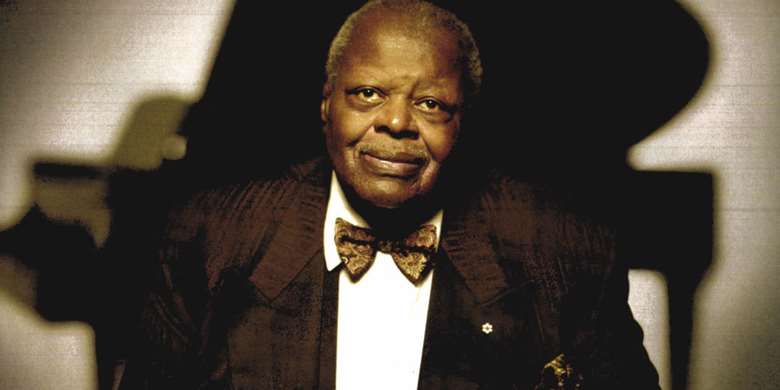
All sorts of reports have been buzzing around concerning Oscar Peterson over the last few years, that he's playing fewer concerts, gradually withdrawing from the stage, or finally succumbing to the tribulations of old age. As it turns out, he’s maintained a steady presence at some of his favourite venues around the world, but has just been keeping a lower profile, which is, he explains, why it’s been several years since his last appearances in the UK. Talking to him. it’s an immediate relief that the old impish sense of humour is undimmed, and he’s still able to erupt into a volcanic chuckle at a moment's notice.
“You see, Alyn, I just wanted to spend more time at home with my family. After all, I'm supposed to be 80 years old in August.”
“What do you mean, ‘supposed' to be?" A huge chuckle. “Well, one never knows, do one?”
“The secret of a bass player in the group is unselfishness. They play for me as I play for them. When they're doing a solo, I don’t always play predetermined chords. I take liberties, and if they’re listening they'll pick up on it”
This is typical of Oscar – he remembers an earlier conversation we had about Fats Waller, and can't resist inserting a favourite Wallerism into the conversation. His wordplay, wit and sparkle are as sharp as ever, and he’s as verbally combative as he is at the keyboard. We get talking of witticisms and bon mots, and he raises the subject of the man he thinks of as the master of verbal ingenuity among jazz musicians, namely Duke Ellington.
“I loved Duke,” he says, “and I got to know him during some of those long-running package tours Norman Granz put together, where his orchestra and my trio would tour alongside one another. I had to be careful if I introduced any of his music on the show, because his own band would always be playing an all Ellington/Strayhorn programme, and we didn’t want to duplicate numbers. But I so loved the colours in his writing, the way that pastel shades and harsher colours existed together, both in the band orchestrations and in the pieces themselves, that we would always squeeze one or two of his compositions into our programmes.
“He seemed to love the way we tackled them, even though there were only three of us, compared to his own huge orchestra. And quite often he’d be there in the wings as we came off stage, and he’d murmur, ‘I liked your reading of that selection!'
“Duke always found the elegant way to say things, even if it was the long way round to get to the point. And he had such charm. I remember another time when we were both playing Bop City in New York. Just in front of the bandstand was a table with four or five ladies sitting staring up at the band, and one of them was wearing what I can only describe as a spectacular evening gown. We all looked at it, we all commented on it, but it was Duke who found the right thing to say, when he wandered over to the group in his elegant, slightly off hand way, and said, 'My dear, you make that gown look marvellous.' He had the dialogue!”
I wonder if, aside from approving of the trio's interpretations of his music. Duke had had a direct influence on Oscar’s playing.
“Maybe not stylistically,” he says. “But I remember he gave me one very good piece of advice. I think it was around 1970, when Norman Granz was trying to persuade me I ought to make a solo album. I was adamantly against it, and wanted to go on recording with the trio. For some reason or another. Duke got caught up in the conversation, and I'll never forget his advice. As ever, he didn't cut straight to the chase, but he found a higher level of conversation. He said, “Oscar, I think you should do as Norman suggests. Don't you think occasionally people like caviare on its own, without the eggs and onions?”
The result, of course, was the Tracks album originally made for Hans Georg Brunner-Schwer's MPS label, and among the discs being re-released by Verve to celebrate Oscar’s UK visit and his impending birthday.
“Actually, while we're thinking of Hans Georg.” says Oscar, “I should say that I think his contribution to the music has been overlooked. He made hundreds of wonderful sessions at his studio in the Black Forest, and he was responsible for keeping the careers of a lot of fine musicians going. He was a hands-on producer as well. Sometimes when we were warming up he'd come in and shout at me, 'Come on, Oscar, play some chords for me!' He loved Milt Buckner and those block chords of his, and he always wanted to bring that out in my playing. He’d always find something like that to get the date going, and his enthusiasm was boundless. Of course, those dates had a different atmosphere from any other studio, because firstly the room where we recorded was built on to his house, and secondly there was always an invited audience. They were cautioned to be quiet, so on something like our Exclusively For My Friends series, as you listen to the records, you wouldn't know they were there. But we did, and having a live crowd sitting listening to us made for a much warmer atmosphere on the discs.”
It occurs to me that playing in that setting must be a little like playing in a club, something that Oscar used to do a lot at one stage in his career, but has done far less in recent times, although I did catch him in fine form at the Blue Note in New York in 1998, clearly revelling in such close contact with the crowd.
“I don't really miss the clubs,” he says, reflectively. “But in one way they were always a good catalyst. In clubs our playing would always be a lot looser, and we'd look at one another a different way, more eye contact, perhaps a different type of challenge. We might push the music into different directions in a way that we would not on the concert stage. After all a concert is a more formal set procedure. We do the numbers that are called, although I always try to call imaginative sets, and I try to ensure that when we tour we don't ever play the same numbers every night. I've never interfered with the soloists in the band when it comes to their turn on a concert and nor do they interfere with me, but we work hard to play the best we can on the selection for that night.”
Which brings us to his British concerts this month, at the Royal Albert Hall in London and the Bridgewater Hall in Manchester. It must have been a tremendous shock to him to have heard the news of the sudden death of Niels Henning Ørsted-Pedersen, who had been announced as playing the tour.
“Yes, of course it was a huge shock, because he was only 58. It’s also affected my whole routine, because he and I would always get together for a few days at my house in Canada before we went on the road. We’d play together, work stuff out before the concerts, that kind of thing. Niels always marvelled at anything technical, and his jaw used to drop when he got into the recording studio I have at my house, although in reality it's nothing that special. It is useful, though, because we work everything out for the group there. We can record new arrangements, play them back, critique them, and that helps get our library together. It's very important to me that we have a properly worked out library of arrangements, because I want to showcase the guys in the band as well as possible, and you can’t rely on doing that in a concert setting with a looser approach. This way, we can digest new arrangements before we go out on the road, and then play them into reality, so to speak. Niels was always a vital part of that process, and he was almost one of the family, so it’s pretty earth shattering that he’s gone. Indeed, my 13-year-old daughter Celine is the one who has taken it hardest, because she just can’t imagine that Uncle Niels isn’t coming back to visit us. I’m very fortunate that I’ve got a good Canadian friend, David Young, who will be playing in his place in Britain, and who is not only a fine bass player, but was a good friend of Niels. Ulf Wakenius is still with us, of course, on guitar, and on drums I have another old friend Alvin Queen.”
On the one occasion I met Alvin, at Brecon, he was laden down with camera gear, taking photos of the Welsh mountains. I wondered if he and Oscar had discussed their joint passion for photography.
“Have we just,” he chuckles. “I think Alvin is one of the few musicians in the world who may have a camera addiction that rivals mine!”
I recall the boxes of camera equipment that Oscar had piled in his hotel room when we last met. Has he succumbed to the challenge to go digital?
“Just ask my bank manager! Yes, indeed. I love the immediacy of it, it’s so quick and personal. I’ve never particularly liked having to take rolls of film into the drugstore and then having to wait while they are developed. Even though that process is very quick now, compared to the old days when I was on tour, and hoping to be able to stay in the same place long enough to get the prints back before we moved on, I rejoice in not having to go through that.”
Why did he get so deeply into photography? “It’s a life of travelling. I began because I wanted to remember the places I’d been, and before I knew it, I had a collection. It was a great hobby for me when we’d be on the road for months at a time, in the days before my family could travel with me. It made up for missing home and friends, and of course there was always something to show them of my travels.”
Does he think he had this in common with other well-known jazz photographers, like Milt Hinton or Dizzy?
“Definitely with Milt, and we'd always talk the latest cameras. But Dizzy was a bit more on and off with his enthusiasm, like a flickering bulb. Sometimes he was just bubbling over with enthusiasm, but other times, something else would have caught his attention.” So with Alvin and David coming in to the line-up, does he think the sound of the group will change? “Undoubtedly, because I like to factor the individual personalities of the musicians in to what we do, so they come through musically. I’m always after the sense of a productive musical competition. We all go after each other, to keep the spirit alive, and that's what is still the essence of jazz, and why I still want to get out there and play. Of course. I’ll have gone over the music with David. Because Niels and I worked out a way of covering the bass end of the register after my stroke in the early 1990s, I’ll have worked through the repertoire with David and shown him what I need and how to achieve it – and vice versa. But believe me, once we get into eights or fours at the end of a tune, there's no love lost! We'll be going for one another!
“The secret of a bass player in the group is unselfishness. They play for me as I play for them. When they're doing a solo, I don’t always play predetermined chords. I take liberties, and if they’re listening they'll pick up on it. And the same goes for me. I think the best way I can describe it is that we open rooms for one another to create in. “I realised when George Mraz was in the band that what I needed was more than a bassist who was brilliant at following what I did, but who wasn’t pushing me enough. This is not to denigrate George, because he was almost telepathic in picking up what I was doing, but he never had the all encompassing competitive spirit I look for today. Maybe it’s just because he’s a very nice guy, but he wasn't as abrasive as he needed to be in the band. When Ulf joined the group on guitar, for example, it was immediately the same sense of warfare I’d had with Herbie Ellis, Barney Kessell or Joe Pass, but as with them, something that could transform into a thing of great beauty as well.”
Having had long years of experience with the two classic trio line ups, with guitar and bass, and then with bass and drums does Oscar reckon that his present quartet offers him the best of both formats? “Both formats offer opportunities. I’ve said many times that the drum option is primarily percussive. It changes my lines, and I don't play the same way as I do without drums. I love the heat a drummer generates, and that always has an impact on me. I’m sure that will be a feature of Alvin's playing with our group this summer. But then when Ulf takes the foreground, we can get close to the kind of feel I got with Herbie, Joe or Barney. Then it’s more harmonic, we focus on a different aspect of improvisation. I think the beauty of the present line-up over any I’ve had before is that then we can change that mood. The drums can add a more percussive feel, change the mood to a more driving atmosphere, and suddenly the entire texture of a piece can change. You don’t lose the harmonic depth, but you change the context, and that variety for me, is still part of the essence of jazz.”
Essential Albums
Piano Moods
Universal
If you wanted one primer for Oscar Peterson’s career, then this anthology set is it. Plenty of line-ups from across the years, and the only notable absence is the early trio with Herb Ellis.
Walking the Line
Universal
The original LP had very stylish early seventies artwork, with OP in flares amid Yellow Submarine-style graphics. Close miked and with a rather more aggressive presence in the sound than most MPS albums, this has the lesser-known line up of George Mraz on bass and Ray Price on drums. Oscar gets gospelly on 'Rock of Ages', and produces a classic reading of 'Just Friends'. Despite OP’s comments in the interview, Mraz plays up a storm with some aggressive solos that show there was an alternative approach to Ray Brown's for working in this trio.
Tracks
MPS/Universal
Cut in the Brunner-Schwer studio at Villingen in 1970, this is Oscar alone at the piano. Norman Granz was right to insist on a solo disc, and indeed within two years of this recording, Oscar had undertaken a world tour as a soloist, playing alone in some of the venues that had only ever hosted the trio. He pays homage to his mentors on a stride ‘Honeysuckle Rose’, on John Lewis' ‘Django,’ and on a bluesy ‘Ja-Da’, a well-worn trad tune that became a Peterson favourite for the twists and turns he would introduce to its simple melody.
Another Day
Universal
Cut at the same session as Walking The Line, this is also the Mraz/Price trio. OP shows what to my mind are his affinities with McCoy Tyner (always much more influenced by Peterson than one might think) on ‘Greensleeves,’ and reminds us of his long association with Norman Granz on ‘The JAMFS are Coming.’
Reunion Blues
MPS/Universal
This 1971 version of the 'Very Tall' band has Ray Brown and Milt Jackson joining Oscar in his most imperious form. (Louis Hayes is the drummer). They sear through ‘Red Top,’ take time to relax on ‘Some Day My Prince Will Come,’ but save their best efforts for the title track, which was to become a staple in both Oscar and Milt Jackson's repertoire.
This interview originally appeared in the July 2005 issue of Jazzwise magazine. Never miss an issue – subscribe today
